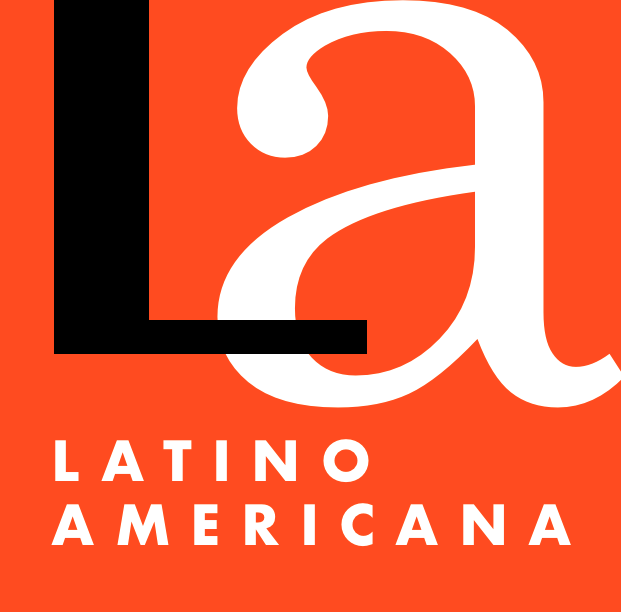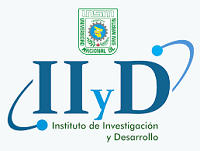About the Journal
- Focus and scope
- Indexing
- Publication frequency
- Payments for publishing (APC)
- Peer review process
- Support
- Funding sources
Focus and scope
Revista Científica de Sistemas e Informática (RCSI) (e-ISSN: 2709-992X) is an open access science journal edited by the National Universidad Nacional de San Martín, through the Editorial Fund in collaboration with the Faculty of Systems Engineering and Informatics (Contact: fondoeditorial@unsm.edu.pe).
RCSI is a publication of international scope that disseminates contributions rigorously evaluated by peers, under the double-blind modality. In addition to original articles, the reader will find review articles, short communications, scientific notes, letters to the editor, and editorials.
Its mission is to disseminate the knowledge produced by the academic-scientific community in the areas of Computer Science, Information Systems, Computer Networks and Communications, and Control and Systems Engineering. The aim of the magazine is to publish original and unpublished articles of great relevance to society, every six months. Its target audience is academics, professionals, and students linked to systems engineering and related careers.
Starting with volume 4 number 2, the RCSI will accept and publish contributions in Spanish and English, with the aim of improving its visibility and reach internationally.
Types of collaborations
All works published in the RCSI must be rigorous and well founded; not have been previously published or submitted simultaneously to an opinion in another journal.
Arbitrated papers
a) Original articles. Presents the results of scientific research based on theoretical or experimental hypotheses, which means an original contribution to knowledge in one of the journal's areas of interest. It tells how to define the research question, the way to test it (statistical analysis of the experiment, disciplinary protocols) and the confrontation of the data generated with the current literature.
b) Review articles. Works of meta-analysis and exhaustive critical evaluation of research carried out on topics within the journal scope. This type of work offers the state of knowledge of the object or study area, which allows identifying relationships, contradictions or inconsistencies in the topic of interest, and making proposals for further studies.
c) Short communications. Reports of unusual importance, urgency and interest and must contain relevant preliminary results. It cannot be more than four pages of the magazine (approx. 4000 words). Larger communications will be returned to authors for reduction. An explanation that justifies the publication of a communication must include its importance and interest, which will help the editor to accept or reject the communication.
Non-refereed papers
a) Scientific notes. Presents observations and brief scientific descriptions of methods or results, progress of research work or news of scientific interest. The results must be conclusive or important to disseminate a complete phase of an ongoing investigation. It cannot be more than five pages of the magazine (approx. 5000 words). In the case of the Summary and Abstract, the length should not exceed 100 words. It is also recommended that in the bibliographic references, the essential be noted.
b) Letters to the editor. We publish works that expose objections or comments referred to recently published articles; not without first considering the right of reply on the part of the author, who may reply in a letter of similar length within a month. The editorial committee assesses the relevance of the publication of the reply.
c) Editorials. Works written by the editor, a member of the editorial committee or a guest researcher (guest editor) on orientations in the thematic domain of the journal or of public interest of methodological or scientific theories; and/or topics of debate and academic actions of science and technology.
IMPORTANT
We do not accept opinion pieces or informal essays; works without theoretical foundation; incipient or inconclusive investigations; narrations, anecdotes or personal or institutional experiences; book summaries; papers with serious writing problems or articles unrelated to the areas of interest.
Code of ethics
RCSI adheres to the code of ethics for the actions and performance of the actors involved in the publication process of this journal (editors, editorial committee, authors and reviewers) established by the Committee on Publication Ethics (COPE), available at publicationethics.org
Indexing
RCSI constantly postulates and subscribes to national and international databases, portals, repositories and directories, in order to improve its impact on the scientific community within its scope, and achieve its prompt acceptance in high impact indexes. As of December 2023, the RSCI is in:
 |
 |
 |
 |
 |
|
 |
 |
|
 |
 |
 |
 |
 |
|
 |
 |
Publication frequency
We published the RCSI every six months (January-June and July-December). The date set for the publication of the manuscripts, as of v2 n1, is January and July of each year.
Payments for publishing
RCSI does not issue or receive payment for the submission, processing and publication of papers.
Peer review process
Contributions must favorably accredit the academic opinion process, which will operate under the double-blind peer review modality, where the identity of both the authors and the reviewers will remain anonymous:
- We will send articles, which accredit the editorial opinion, to expert academics in the same disciplinary and thematic area as those of the postulated paper. We will select reviewers from the portfolio of referees –made up of specialists from national and international institutions-, who will comment on the relevance and quality of the proposed paper and determine the feasibility of its publication.
- The reviewers will be responsible for reviewing and analyzing the original contribution of the papers, that the theoretical references are relevant, the appropriate methodology and assess the relevance of the findings described.
-
We will send all papers to two experts –attached to an institution other than the authors–, who will issue their comments. Ultimately, based on the reviewers' recommendations, the editor's decision will be:
REFEREE A REFEREE B RESOLUTION Positive Positive Aceptado Positive Negative Sending the article to referee C, whose decision will be final and unappealable Positive Conditional (subject to change and resend) The corrected article returns to the referee, who accepts or rejects the publication (2nd round) Negative Conditional (subject to change and resend) Rejected Negative Negative Rejected - The editorial committee will guarantee, in all cases, that the opinions delivered to the authors contain solid arguments that support the editorial decision.
- The results of the academic opinion process will be final in all cases..
- The time for the document submitted for opinion will depend on the number of articles on the waiting list. Once we notified the article reception to the author, the estimated time for the opinion is 6 weeks.
- In case of receiving comments, the author will have a period of two weeks to send the new version of the paper to the editor.
- The referees, once the article has been received, will have a period of one month to carry out the review and deliver the result.
- Accepted papers that are going to be published, will begin the editing process (correction of style, layout, metadata marking, etc.), according to the decision of the editorial direction.
- Once the editorial process is complete, we turned out the preliminary version of the paper to the authors for final review and approval. These will have a period of three calendar days for the delivery of the approval, if there is not comments within that period, the journal's editorial coordination will assume that the authors have given their tacit approval.
- We will only issue publication certificates to those authors who request it from the journal editor.






